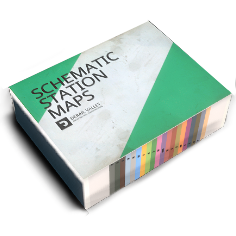Electricity/en: Difference between revisions
Appearance
Updating to match new version of source page |
Updating to match new version of source page |
||
| (3 intermediate revisions by the same user not shown) | |||
| Line 1: | Line 1: | ||
<languages /> | <languages /> | ||
{{ | Most {{pll|Rail Vehicle Types|motorized rail vehicles}} use electricity to run some of their systems, such as {{pll|Compressor|compressors}}, {{pll|Headlights & Cab Lights|lights}} and {{pll|Traction Motors|electric transmissions}}. Some {{pll|Internal Combustion Engine|generate electricity onboard}}, while others draw it from {{pll|Electric Powersource|external infrastructure}}, such as overhead wires. Even on {{pll|Steam Overview|steam locomotives}}, electricity is generated onboard by a steam-powered dynamo. | ||
Before setting | Before setting a vehicle in motion, ensure that all of its electrical systems are enabled, either via {{pll|Breakers|breakers}} or valves. | ||
{{ | Some {{pll|Gadget Installation|gadgets}} require vehicles to have onboard electricity in order to function. While {{pll|Rail Vehicle Types|cars}} are generally unpowered, {{pll|Rail Vehicle Types|tenders}} and {{pll|Caboose|caboose}} are equipped with electricity. | ||
[[Category:Accessories]] | |||
[[Category:Accessories|1]] | |||
Latest revision as of 22:27, 17 March 2025
Most motorized rail vehicles use electricity to run some of their systems, such as compressors, lights and electric transmissions. Some generate electricity onboard, while others draw it from external infrastructure, such as overhead wires. Even on steam locomotives, electricity is generated onboard by a steam-powered dynamo.
Before setting a vehicle in motion, ensure that all of its electrical systems are enabled, either via breakers or valves.
Some gadgets require vehicles to have onboard electricity in order to function. While cars are generally unpowered, tenders and caboose are equipped with electricity.
